Sleep Apnea vs. Snoring Treatment in Aventura, Pembroke Pines, and Fort Lauderdale, FL
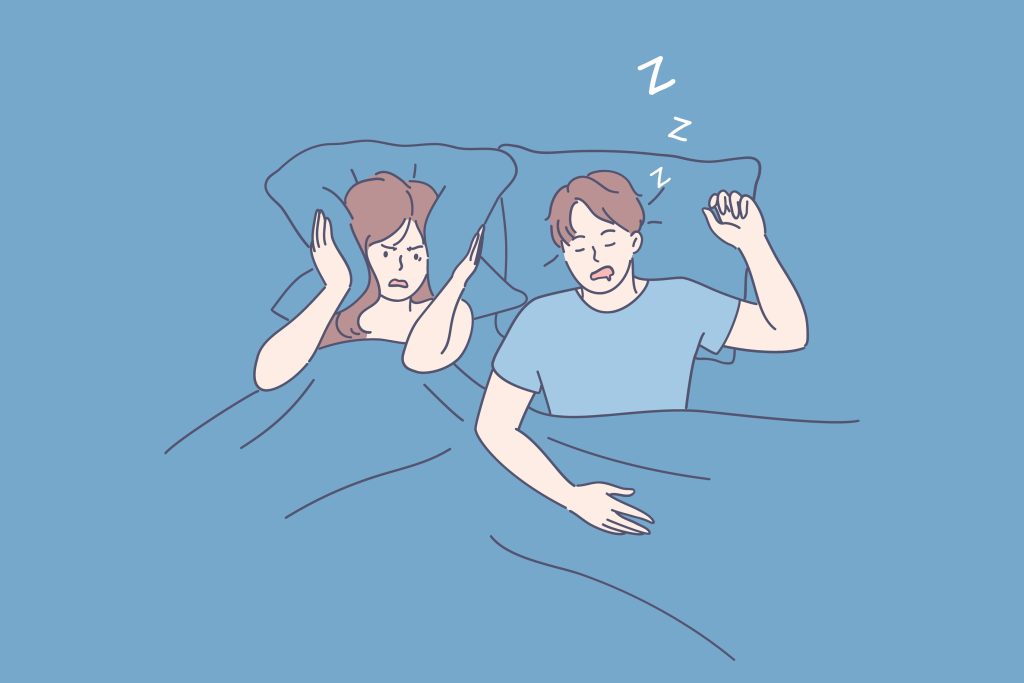
Is Your Snoring an Indicator of Sleep Apnea?
Sleep is essential for our overall well-being, and disturbances during sleep can have a significant impact on our health and quality of life. Two common sleep-related issues that often get confused are sleep apnea and snoring. While both can disrupt a good night’s sleep, they’re distinct conditions with different causes, symptoms, and consequences.
At The Dental Care Group, we understand that distinguishing between simple snoring and sleep apnea can be challenging. With over 50 years of experience serving South Florida families, our team has the expertise to help you determine whether your snoring is a harmless annoyance or a sign of a more serious sleep disorder requiring treatment.
Contact our local dentists near you to schedule your evaluation at our Aventura dental office (305-935-2797), Pembroke Pines dental office (954-430-2300), or Fort Lauderdale dental office (954-963-3706).
Comprehensive Dental Care Under One Roof
At The Dental Care Group, we understand that your time is valuable. That’s why we offer a full spectrum of dental services at each of our three convenient locations. From preventive care and pediatric dentistry to advanced cosmetic dental treatments, our multi-specialty expertise means you and your family can receive all your dental care in one comfortable, familiar setting.
We even offer innovative treatments like Botox® Cosmetic to complement your smile transformation. With state-of-the-art technology and a team of highly trained dentists and specialists, we’re equipped to handle even the most complex dental needs—all without requiring you to visit multiple offices.
What Causes Snoring?
Snoring can be caused by various factors, both temporary and chronic. Understanding these causes can help you determine whether your snoring is likely to be benign or a sign of something more serious. Common causes include:
- Obesity: Excess weight, particularly around the neck, can put pressure on the airway, making it more likely to narrow during sleep and cause vibrations.
- Enlarged Tonsils or Adenoids: These can physically block the airway, especially in children, causing snoring and potentially sleep apnea.
- Nasal Congestion: Allergies, colds, sinus infections, or a deviated septum can force you to breathe through your mouth, increasing the likelihood of snoring.
- Sleeping Position: Sleeping on your back allows gravity to pull the tongue and soft tissues backward, partially blocking the airway and causing snoring.
- Alcohol and Sedative Use: These substances relax the throat muscles excessively, making airway collapse and snoring more likely. Alcohol consumption within a few hours of bedtime is a common trigger.
- Age-Related Muscle Relaxation: As we age, throat muscles naturally lose tone, making snoring more common in middle-aged and older adults.
- Anatomical Factors: A long soft palate, elongated uvula, large tongue, or small jaw can contribute to airway narrowing and snoring.
- Smoking: Irritates the tissues in the throat and nose, causing inflammation and increased mucus production, both of which can lead to snoring.
What Is Sleep Apnea?
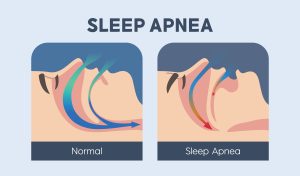 Sleep apnea is a sleep disorder characterized by repeated interruptions in breathing during sleep. These pauses in breathing, known as apneas, can last for seconds to minutes and can occur multiple times during the night. Unlike simple snoring, sleep apnea involves actual cessation of breathing, which can have serious health consequences.
Sleep apnea is a sleep disorder characterized by repeated interruptions in breathing during sleep. These pauses in breathing, known as apneas, can last for seconds to minutes and can occur multiple times during the night. Unlike simple snoring, sleep apnea involves actual cessation of breathing, which can have serious health consequences.
Each time breathing stops, your blood oxygen levels drop, and your brain must briefly wake you to restart breathing. These awakenings are usually so brief you don’t remember them, but they prevent you from reaching the deep, restorative sleep stages your body needs. Over time, this pattern can lead to chronic sleep deprivation and significant health problems.
Types of Sleep Apnea
There are two primary types of sleep apnea:
Obstructive Sleep Apnea (OSA): This is the most common type of sleep apnea, accounting for about 84% of all sleep apnea cases. Obstructive sleep apnea occurs when the muscles in the throat relax excessively during sleep, leading to the narrowing or complete closure of the airway. The obstruction prevents air from flowing into the lungs, even though the person continues to try to breathe.
Central Sleep Apnea (CSA): CSA is less common and results from a failure of the brain to transmit the proper signals to the muscles responsible for controlling breathing. Unlike OSA, there’s no physical blockage of the airway—the problem is neurological. The brain simply fails to tell the body to breathe.
Some individuals may have Complex Sleep Apnea Syndrome, also called treatment-emergent central sleep apnea, which combines elements of both OSA and CSA.
Sleep Apnea Symptoms
Sleep apnea symptoms are typically more severe and impactful than simple snoring. Common symptoms of sleep apnea include:
- Loud Snoring: Often louder and more irregular than simple snoring, with pauses and gasping sounds. However, not everyone with loud snoring has sleep apnea, and not everyone with sleep apnea snores loudly.
- Pauses in Breathing During Sleep: Often observed by bed partners, these episodes are concerning to witness and are a hallmark sign of sleep apnea.
- Gasping or Choking During Sleep: As breathing resumes after a pause, you may gasp, snort, or choke, sometimes waking yourself up.
- Excessive Daytime Sleepiness: Feeling overwhelmingly tired during the day, regardless of how many hours you spend in bed. This is one of the most significant differences between sleep apnea and simple snoring.
- Morning Headache: Frequent headaches upon waking, often caused by low oxygen levels and increased carbon dioxide during the night.
- Difficulty Concentrating: Problems with focus, memory, decision-making, and cognitive function due to poor sleep quality.
- Irritability: Mood changes, increased frustration, anxiety, or depression related to chronic sleep deprivation.
- Frequent Nighttime Urination: Sleep apnea can trigger hormonal changes that increase urine production.
- Dry Mouth or Sore Throat Upon Waking: Often caused by mouth breathing throughout the night.
- Night Sweats: Increased sweating during sleep due to the physical stress of breathing difficulties.
If you’re experiencing these symptoms, it’s important to seek professional evaluation, as untreated sleep apnea can lead to serious health complications.
Differences Between Snoring and Sleep Apnea
Understanding the key differences between snoring and sleep apnea can help you determine whether you need professional evaluation and treatment. There are several distinguishing factors:
Nature of the Condition
Snoring: Involves noisy vibration of tissues during breathing, but doesn’t necessarily involve pauses in breathing or oxygen deprivation.
Sleep Apnea: Involves actual pauses in breathing during sleep, where airflow stops completely or nearly completely, resulting in oxygen deprivation and sleep fragmentation.
Health Consequences
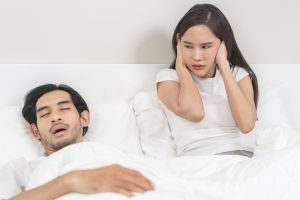 Snoring: Generally considered a nuisance, primarily affecting bed partners. While it can indicate airway resistance, simple snoring typically doesn’t cause serious health problems for the snorer.
Snoring: Generally considered a nuisance, primarily affecting bed partners. While it can indicate airway resistance, simple snoring typically doesn’t cause serious health problems for the snorer.
Sleep Apnea: Can lead to serious health issues, including cardiovascular problems (heart disease, heart attack, stroke), high blood pressure, type 2 diabetes, metabolic syndrome, liver problems, cognitive impairment, and increased risk of accidents due to daytime sleepiness.
Diagnosis Method
Snoring: Typically diagnosed based on the sound produced during sleep and a physical examination. A sleep study may be recommended to rule out sleep apnea.
Sleep Apnea: Diagnosed through comprehensive sleep studies (polysomnography) that monitor various aspects of your sleep, including breathing patterns, oxygen levels, brain activity, and heart rate.
Treatment Approaches
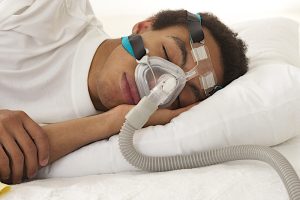 Snoring: Management often includes lifestyle modifications (weight loss, avoiding alcohol and sedatives), positional therapy (changing sleep position), using snoring mouthpieces or nasal strips, and addressing underlying causes like nasal congestion.
Snoring: Management often includes lifestyle modifications (weight loss, avoiding alcohol and sedatives), positional therapy (changing sleep position), using snoring mouthpieces or nasal strips, and addressing underlying causes like nasal congestion.
Sleep Apnea: Treatment may involve lifestyle changes, continuous positive airway pressure (CPAP) therapy, custom oral appliances, mouth and throat exercises, or surgery for severe cases. Treatment is medically necessary rather than optional.
Daytime Symptoms
Snoring: May not cause significant daytime symptoms for the snorer, though bed partners may experience sleep disruption.
Sleep Apnea: Typically associated with excessive daytime sleepiness, fatigue, difficulty concentrating, morning headaches, and mood changes due to chronic sleep deprivation.
Oxygen Levels
Snoring: Generally doesn’t significantly affect blood oxygen levels.
Sleep Apnea: Causes repeated drops in blood oxygen saturation (oxygen desaturation), which can stress the cardiovascular system and lead to health complications.
When Simple Snoring Becomes Sleep Apnea
It’s important to recognize the warning signs that your snoring may actually be sleep apnea. You should seek professional evaluation if you experience:
- Witnessed pauses in breathing during sleep
- Gasping or choking sounds during sleep
- Excessive daytime sleepiness despite spending adequate time in bed
- Morning headaches
- Difficulty concentrating or memory problems
- High blood pressure, especially if difficult to control
- Waking up with a dry mouth or sore throat
- Nighttime sweating
- Restless sleep or frequent awakenings
Even if you’re not sure whether you have sleep apnea, it’s better to be evaluated and rule it out than to leave a potentially serious condition untreated.
Diagnosis and Treatment
Sleep Apnea Diagnosis
Sleep apnea is typically diagnosed through a sleep study (polysomnography) that monitors various aspects of your sleep, including breathing patterns, oxygen levels, brain activity, heart rate, and body movements. This can be performed in a sleep laboratory or, in some cases, at home with portable monitoring equipment.
Sleep Apnea Treatment Options
At The Dental Care Group, we offer custom-made mandibular advancement devices (MADs) that reposition your jaw and tongue to keep the airway open. These are particularly effective for mild to moderate sleep apnea and for patients who cannot tolerate CPAP therapy.
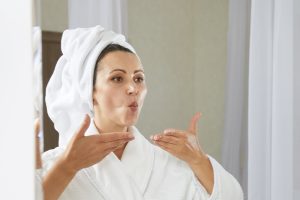 Mouth and Throat Exercises
Mouth and Throat Exercises
Oropharyngeal exercises can strengthen the muscles in your mouth and throat, potentially reducing the severity of mild sleep apnea symptoms when used as part of a comprehensive treatment plan.
Surgery
For severe cases or when other treatments have failed, surgical options such as uvulopalatopharyngoplasty (UPPP), tonsillectomy, or jaw repositioning surgery may be considered to address underlying anatomical issues.
Snoring Diagnosis
Snoring is often diagnosed based on a physical examination, discussion of symptoms, and reports from bed partners. In some cases, a sleep study may be recommended to rule out sleep apnea and ensure the snoring is benign.
Snoring Treatment Options
Snoring can be managed through various approaches:
- Lifestyle Changes: Weight loss, avoiding alcohol and sedatives before bed, treating nasal congestion or allergies, and maintaining good sleep hygiene.
- Positional Therapy: Sleeping on your side rather than your back can reduce or eliminate snoring for many people. Special pillows or devices can help maintain a side-sleeping position.
- MADs: Custom-fitted oral appliances can help keep the airway open and reduce snoring.
- Nasal Strips or Dilators: These devices can help open nasal passages and reduce snoring caused by nasal congestion.
- Treating Underlying Conditions: Addressing allergies, sinus problems, or structural issues like a deviated septum can significantly reduce snoring.
Frequently Asked Questions
Can snoring lead to sleep apnea?
While snoring itself is not a direct cause of sleep apnea, it can be a symptom or warning sign of sleep apnea. Loud and persistent snoring, especially when accompanied by other symptoms like gasping or witnessed breathing pauses, should be evaluated by a healthcare professional. In some cases, what starts as simple snoring can progress to sleep apnea as risk factors like weight gain or aging affect airway function.
Are there natural remedies for snoring?
Yes, there are natural remedies for snoring, such as weight loss, changing sleep position (sleeping on your side), elevating the head of your bed, using saline nasal sprays to alleviate congestion, staying hydrated, and avoiding alcohol before bedtime. Lifestyle modifications can often reduce or eliminate simple snoring. However, if snoring persists despite these changes or if you have symptoms of sleep apnea, professional treatment is necessary.
Can children have sleep apnea?
Yes, children can have sleep apnea, which is often associated with enlarged tonsils or adenoids, obesity, or certain craniofacial abnormalities. It’s important to identify and treat pediatric sleep apnea to prevent long-term health issues, including growth problems, behavioral issues, learning difficulties, and cardiovascular complications. Our Dental Care Group Kids program specializes in pediatric dental care and can evaluate your child for signs of sleep-disordered breathing.
How do I know if my snoring is serious?
You should seek professional evaluation if your snoring is accompanied by gasping, choking, or pauses in breathing; if you experience excessive daytime sleepiness; if you have morning headaches; if your bed partner reports that your snoring is loud and disruptive; or if you have other risk factors for sleep apnea such as obesity, high blood pressure, or a large neck circumference. When in doubt, it’s always better to be evaluated and rule out sleep apnea.
Will treating my snoring or sleep apnea improve my partner's sleep?
Absolutely! One of the immediate benefits of treating snoring or sleep apnea is improved sleep quality for bed partners. Many couples report better relationships and improved quality of life after successful treatment, as both partners are finally able to get restful, uninterrupted sleep.
2797 NE 207th Street, Suite 100 Aventura, FL 33180 | (305) 935-2797
12634 Pines Blvd. Pembroke Pines, FL 33027 | (954) 430-2300
3107 Stirling Rd #108 Fort Lauderdale, FL 33027 | (954) 963-3706
Know When to Seek Treatment for Sleep Apnea
If you snore, it’s best to seek a sleep apnea evaluation. While snoring doesn’t always mean you have a sleep disorder, it’s always best to rule it out. Untreated sleep apnea can lead to serious health complications, but with proper diagnosis and treatment, you can enjoy restful sleep and improved health.
To learn more and schedule your evaluation with our Aventura, Pembroke Pines, or Fort Lauderdale dentist, contact us today by calling 305-935-2797 (Aventura), 954-430-2300 (Pembroke Pines), or 954-963-3706 (Fort Lauderdale).
Don’t let snoring or sleep apnea rob you of quality sleep and good health. Contact The Dental Care Group today and take the first step toward better sleep and a healthier life. We’re conveniently open Saturdays at all three locations to accommodate your busy schedule.

